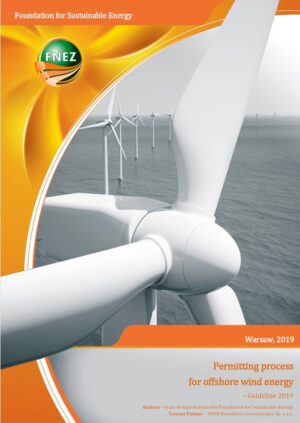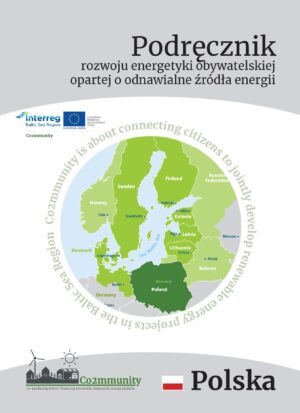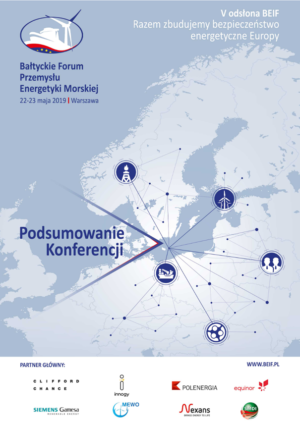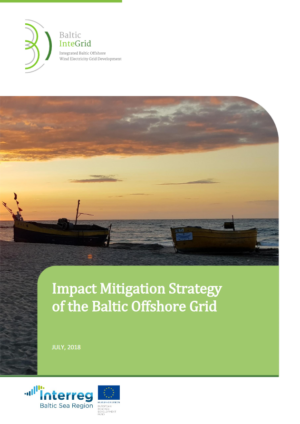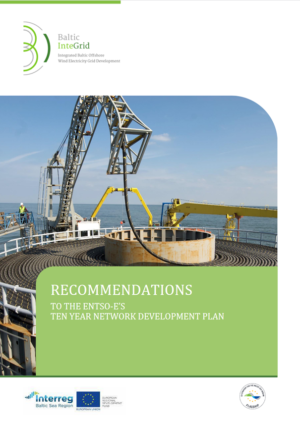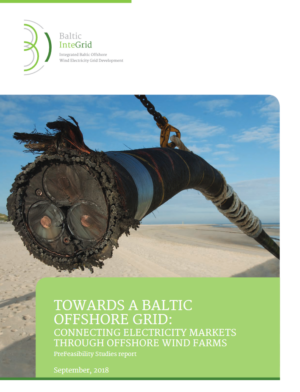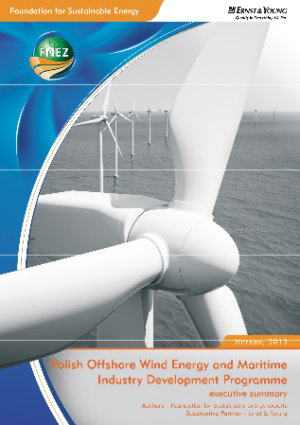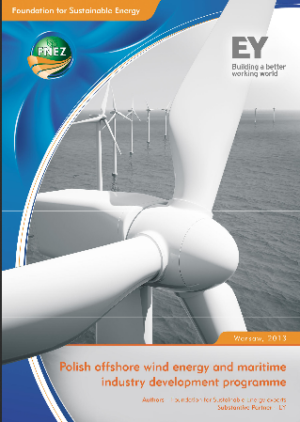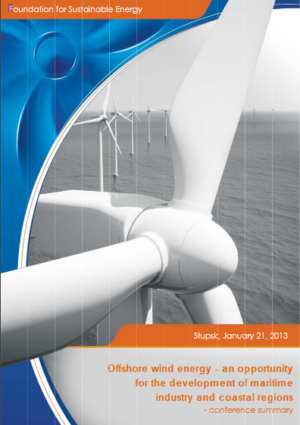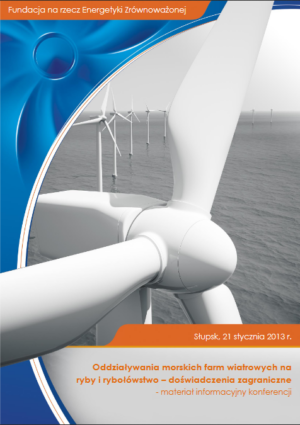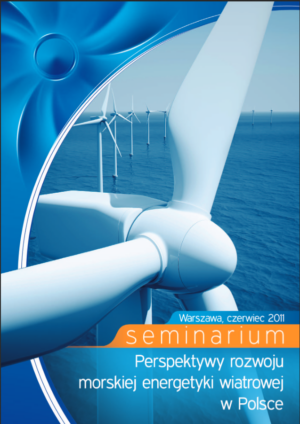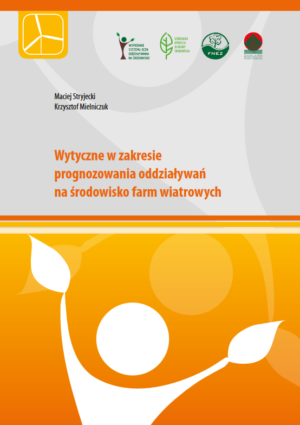LIBRARY
The Guideline presents all of the administrative procedures and actions that must be taken by the project developer and the competent administrative authorities within their framework. The aim of the Guideline is to support all interested parties in the development of offshore wind energy in the proper planning of the project development process. Also, our intention of the Guideline is to create a basis for discussion on the legitimacy and directions of changes in the legislative system of offshore wind energy. Although we are deeply convinced that in Poland it is possible to implement an offshore wind farm project with an offshore external infrastructure, we believe that the process is still too long and too difficult to make Poland a truly competitive market. As long as we do not have a stable and attractive regulatory system, we will not encourage investors to use the entire, huge domestic potential of offshore wind energy.
The aim of the Handbook is to promote the development of “community energy” (hereinafter: “CE”) in Poland. The handbook defines “community energy” and presents a synthetic description of national organizational and legal conditions for the development and promotion of community energy initiatives based on renewable energy sources. The handbook is also a form of a guide, which, based on a collection of foreign and domestic good practices and experiences, is to inspire the implementation of such initiatives in Poland.
The Impact Mitigation Strategy of the Baltic Offshore Grid (BOG) offers suggestions for guidelines and objectives for environmental impact assessment in the scope of strategic assessment, indications of good practices for environmental procedures, and a dialogue with stakeholders for infrastructure investment projects within the BOG.
FNEZ on behalf of Baltic InteGrid consortium submitted Recommendations to the ENTSO-E’ Ten Year Network Development Plan 2018. The Recommendations were submitted within the consultation stage of the ENTSO-E’ Ten Year Network Development Plan 2018 and are based on the findings from the Baltic InteGrid project.
It summarises the results of extensive PreFeasibility Studies performed for 2 cases – an electrical connection between Poland, Sweden and Lithuania integrated with planned offshore wind farms in these countries and an analogical connection between Sweden, Germany.
The results include analysis of technical, spatial and environmental conditions as well as cost-benefit analysis of zero, partial and maximum integration of offshore wind farms with interconnectors.
As part of work on the Baltic Energy for Poland 2025 , Foundation for Sustainable Energy (FNEZ) has developed an update of the offshore wind energy and maritime industry development programme for Poland (January, 2018).
The real potential of Polish offshore wind is between 8 to 10 GW. The construction of the first OWF in Poland, with 600 MW, can start approximately in 2022. The first OWFs can be connected to the grid in 2025. By the end of 2030 we may have approx. 4 GW built, while by 2035 it could be 8 GW – according to the results of the Programme.
The document is a summary of the third edition of the conference “Offshore wind energy an opportunity for the Polish economy” that took place in Warsaw on 27-28 February, 2017. The organizer was Foundation for Sustainable Energy (FNEZ). The conference gathered 244 attenndees from 160 companies and institutions: members of government, parliament and local government, representatives of 4 embassies, national and international investors, representatives of the national and internationaloffshore/maritime industry, Polish and international experts, representatives of NGOs. Discussions during the conference confirmed that the development of offshore wind energy (OWE) and Polish production capacities for offshore wind market are a fact. The participants agreed that the 6 GW OWE potential until 2030, estimated by FNEZ in 2013 (report) and confirmed in further expert studies (McKinsey & Company), is achievable and will contribute to the development and increasing competitiveness of the Polish offshore energy industry.
The document was prepared by experts from the Foundation for Sustainable Energy (FNEZ) and it is the conclusion of the communication and public education campaign for the offshore wind farm Bałtyk Środkowy III (OWF BSIII), of which Polenergia Sp. z o.o. is the investor. The publication contains a detailed description of the activities carried out over the annual campaign, which included preparatory activities, informational and educational campaign, consultations with the fishing community, maritime administration, local authorities and residents.
The document was prepared by experts from the Foundation for Sustainable Energy (FNEZ) and it is a summary of the consultation meetings with representantives of fishing communities from Darłowo, Łeba and Ustka – with the investor Polenergia Bałtyk III. The meetings were part of the communication and public education campaign for the Offshore Wind Farm Bałtyk Środkowy III. The document contains a detail descripsion of the issues disccused during the meetings, as well as the conclusions from discussions.
The State of Play Report was prepared as part of the Seed Money Facility project “Integrated Baltic Offshore Wind Electricity Grid Development (Baltic InteGrid)”. The aim of this initiative is to develop a full scale project (main project) proposal which will be submitted to one of the EU funding programs. Goal of such project will be to prepare a feasibility study for a Baltic offshore grid integrated with offshore wind farm (OWF) projects.
This document is a summary of the Offshore Conference – Development of Coastal Regions organized by Foundation for Sustainable Energy (29-30.09.2014, Słupsk).
Offshore Conference is the most important economic, political and industry event devoted to offshore wind power in Poland in 2014. During two days of the conference two debates took place: “Place of the OWF in the Polish and EU Energy Policy”, “OWF as a chance for Polish coastal regions – road map “and 6 panels (environment, international experience, law, industry, technology, wind research).
was prepared by Foundation for Sustainable Energy experts, in cooperation with Ernst & Young. The Programme was created based on the expectations of politicians, sector representatives, science sector, and NGOs, which were expressed during the Conference “Offshore wind energy – an opportunity for the development of maritime industry and coastal regions”, held in Słupsk in January 2013.
The program presents an optimal in terms of economic, social and environmental development scenario of offshore and marine industry. The scenario is based on the assumption of building 6 GW of offshore wind farms capacity until 2030.
– was prepared by Foundation for Sustainable Energy experts, in cooperation with Ernst & Young. The Programme was created based on the expectations of politicians, sector representatives, science sector, and NGOs, which were expressed during the Conference “Offshore wind energy – an opportunity for the development of maritime industry and coastal regions”, held in Słupsk in January 2013.
The program presents an optimal in terms of economic, social and environmental development scenario of offshore and marine industry. The scenario is based on the assumption of building 6 GW of offshore wind farms capacity until 2030.
This document is a summary of the conference “Offshore wind energy an opportunity for the development of maritime industry and coastal regions”, which took place on 21 of January 2013 in Slupsk. Conference was organized by the FNEZ, Slupsk Technological Incubator, Hanseatic Higher School of Management and the Pomeranian Regional Development Agency.
The purpose of the conference was to evaluate the development perspectives of Polish coastal regions based on the offshore wind energy and maritime industry. The discussion was conducted in three sessions.
This document is an information material from conference “Offshore wind energy – an opportunity for the development of maritime industry and coastal regions”, which took place on 21 of January 2013 in Slupsk. Conference was organized by the Foundation for Sustainable Energy, Slupsk Technological Incubator, Hanseatic Higher School of Management and the Pomeranian Regional Development Agency.
Material provides a summary of key information concerning offshore wind energy, including: the potential of offshore wind energy, opportunities for regional development, environmental and social impacts of the OWF, as well as provisions of the draft RES Act and support support system for offshore wind farms.
elaborated by the Foundation for Sustainable Energy (FNEZ) experts in cooperation with maritime administrative authorities, environmental authorities and major scientific research facilities, is the first and only guide on the Polish market, which comprehensively describes all problems associated with the preparation and conducting the location determination and environmental procedures for offshore wind farms in Poland.
The authors of the Guide have held dozens of meetings, during which they were determining answers to countless questions associated with the practical application of the provisions on the procedures for the location and environmental decisions for offshore wind farms. The Guide presents the currents state of knowledge established during those meetings and discussions.
Presented document is an annex to the report “Analysis of the required level of support for offshore wind farms in Poland in 2025 perspective” prepared on 16 January 2012. The purpose of the annex is to show the impact of the new provisions of the Renewable Energy Sources Act, which have been included in the draft from 4 October 2012, on the economic viability of the construction and operation of offshore wind farms in Poland.
The document constitutes a summary of a discussion conducted during the workshops organized by FNEZ on August 2-3, 2012. The full version of the document is available only for the companies cooperating with the Foundation.
The Parliamentary Group for Energy, in cooperation with the Foundation for Sustainable Energy, organized on May 24, 2012 a seminar on the analysis of political, legal and infrastructural conditions of offshore wind energy development in Polish maritime areas. The post-seminar material elaborated by the experts from the Foundation for Sustainable Energy covers the most important information about the conditions of offshore wind energy development in Poland, discussed during the seminar, and main conclusion.
The document, prepared by FNEZ, is a presentation of the OWF’s potential impacts on fish and fisheries and foreign experience in this field, that may be applicable in Poland.
The seminar was held on June 10, 2011. It was organized by the Foundation for Sustainable Energy together with the Ministry of Economy and the Polish Offshore Wind Energy Society, under the patronage of the Deputy Prime Minister and Minister of Economy, and Minister of Infrastructure. Iberdrola Renewables and Polish Offshore Grid S.A. were substantive partners of the meeting.
The aim of the seminar was to present the current development conditions of offshore wind energy in Poland in a context of implementing the European energy-climate policy and also to estimate the potential of domestic offshore wind farms (OWF) market together and identify the biggest barriers for its development in Poland. The suggestions of actions necessary to undertake in order to eliminate the barriers were also brought about during the meeting. The post-seminar material covers comments of participants and key conclusions of the meeting.
were elaborated by experts of FNEZ – Maciej Stryjecki and Krzysztof Mielniczuk in cooperation with the Environmental Impact Assessments Department in the General Directorate for Environmental Protectio and consulted with Regional Directorates for Environmental Protection and with the National Environmental Impact Assessment Committee. The document was fully agreed and delivered to the General Directorate for Environmental Protection by FNEZ, with publishing rights.
The aim of the guidelines was to make the environmental impact assessment procedures for wind farms more efficient as well as to improve the quality of EIA reports and the environmental impact forecasts. The document is focused on onshore wind farms. Recommendations and information refer to administrative procedures and legal requirements for single wind power turbines or groups called wind farms. The document covers key information about environmental impacts of wind farms, recommendations regarding good practices in the process of preparing investment projects and environmental impact assessments.
